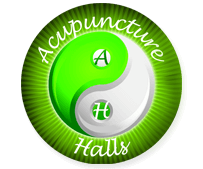
Photo credit to freepik.com
Vertigo, a condition characterized by a sensation of spinning or dizziness, affects a significant portion of the population, often leading to a diminished quality of life. Traditional treatments range from medications to physical therapy, yet many patients seek alternative therapies to alleviate their symptoms. Among these, acupuncture, a practice rooted in traditional Chinese medicine (TCM), has gained attention for its potential efficacy in treating vertigo. This article explores the principles, clinical evidence, mechanisms, and practical considerations regarding the use of acupuncture for vertigo treatment.
Understanding Vertigo
Vertigo is not a disease but a symptom of various underlying conditions. It can be classified into peripheral and central vertigo, based on its origin:
1. Peripheral Vertigo
- Most common type, usually related to problems in the inner ear.
- Conditions include benign paroxysmal positional vertigo (BPPV), Meniere’s disease, and vestibular neuritis.
2. Central Vertigo
- Originates from problems in the brainstem or cerebellum.
- Causes include migraines, multiple sclerosis, and tumors.
Common symptoms of vertigo include a spinning sensation, imbalance, nausea, vomiting, and difficulty focusing. Traditional treatment options involve medications like antihistamines and anticholinergics, vestibular rehabilitation, and lifestyle changes. However, these treatments do not work for everyone, prompting many to explore alternative therapies such as acupuncture.
Principles of Acupuncture
Acupuncture is a component of TCM that involves inserting thin needles into specific points on the body, known as acupoints, to balance the flow of Qi (energy) and promote healing. The practice is based on the following principles:
1. Meridians
- Pathways through which Qi flows, connecting different organs and systems.
- Blockages or imbalances in these pathways are believed to cause illness.
2. Acupoints
- Specific points along the meridians where needles are inserted to stimulate energy flow and restore balance.
3. Holistic Approach
- Acupuncture treats the body as an interconnected system, addressing not only symptoms but also underlying causes of illness.
Clinical Evidence for Acupuncture in Treating Vertigo
A growing body of clinical evidence supports the use of acupuncture for vertigo. Several studies and systematic reviews have examined its efficacy, providing varying degrees of support.
1. Randomized Controlled Trials (RCTs)
- Numerous RCTs have investigated acupuncture’s effectiveness in reducing vertigo symptoms.
- A study published in the Journal of Traditional Chinese Medicine found that acupuncture significantly reduced symptoms in patients with BPPV compared to a control group receiving sham acupuncture.
- Another RCT in the Annals of Internal Medicine demonstrated that acupuncture combined with standard vestibular rehabilitation was more effective in alleviating vertigo than rehabilitation alone.
2. Systematic Reviews and Meta-Analyses
- Systematic reviews of multiple studies have concluded that acupuncture may be beneficial for vertigo patients.
- A meta-analysis in the Cochrane Database of Systematic Reviews highlighted that while many studies show positive results, the overall quality of evidence is moderate, necessitating further high-quality research.
3. Observational Studies and Case Reports
- Observational studies have documented improvements in vertigo symptoms following acupuncture treatment.
- Case reports provide anecdotal evidence of significant symptom relief, contributing to the growing acceptance of acupuncture in clinical practice.
Mechanisms of Action
The exact mechanisms by which acupuncture alleviates vertigo are not fully understood, but several hypotheses have been proposed based on both traditional and modern medical perspectives.
1. Modulation of the Nervous System
- Acupuncture is believed to influence the autonomic nervous system, promoting parasympathetic activity and reducing stress-related symptoms.
- It may also affect neurotransmitter levels, such as serotonin and endorphins, which play roles in regulating mood and balance.
2. Improvement of Blood Circulation
- Acupuncture may enhance microcirculation, particularly in the inner ear and brain, alleviating vertigo symptoms associated with vascular issues.
3. Anti-Inflammatory Effects
- Acupuncture has been shown to reduce inflammatory markers in the body, potentially benefiting conditions like vestibular neuritis where inflammation is a key factor.
4. Vestibular System Regulation
- By stimulating specific acupoints, acupuncture may help regulate the vestibular system, improving balance and reducing dizziness.
Comparative Analysis with Conventional Treatments
Comparing acupuncture with conventional treatments reveals several key insights:
1. Effectiveness
Studies suggest that acupuncture can be as effective as, or even more effective than, conventional treatments for certain types of vertigo, especially when used in conjunction with other therapies.
2. Side Effects
Acupuncture generally has fewer side effects compared to medications commonly prescribed for vertigo, making it a safer alternative for many patients.
3. Long-Term Benefits
Some studies indicate that acupuncture may provide longer-lasting relief from vertigo symptoms compared to conventional treatments, which often require continuous use of medications.
4. Holistic Approach
Acupuncture’s holistic approach addresses not just the symptoms but also potential underlying causes, contributing to overall well-being.
Patient Perspectives and Case Studies
Patient testimonials and case studies provide valuable insights into the real-world application of acupuncture for vertigo:
1. Positive Outcomes
- Many patients report significant improvements in vertigo symptoms, with some experiencing complete resolution of dizziness and balance issues.
- Case studies often highlight rapid symptom relief and sustained benefits over time.
2. Quality of Life
- Improved balance and reduced dizziness lead to better quality of life, allowing patients to engage in daily activities without fear of vertigo attacks.
3. Integration with Other Therapies
- Patients who combine acupuncture with conventional treatments or lifestyle changes often report enhanced results.
Conclusion
Acupuncture presents a promising alternative treatment for vertigo, leveraging its potential to modulate neural activity, improve blood circulation, and reduce stress. Clinical studies and patient testimonials indicate that acupuncture can effectively alleviate vertigo symptoms and enhance overall well-being. By integrating acupuncture with conventional treatments and continuing to explore personalized approaches, healthcare providers can offer a comprehensive and effective strategy for managing vertigo.
If you’re interested in using acupuncture to treat vertigo, you can visit the Acupuncture Halls clinic in San Juan Capistrano, which is close to Dana Point and San Clemente. Our licensed acupuncturist is available to help with any health issues. By completing this form or giving 949-510-6333 a call, you can make an appointment.
